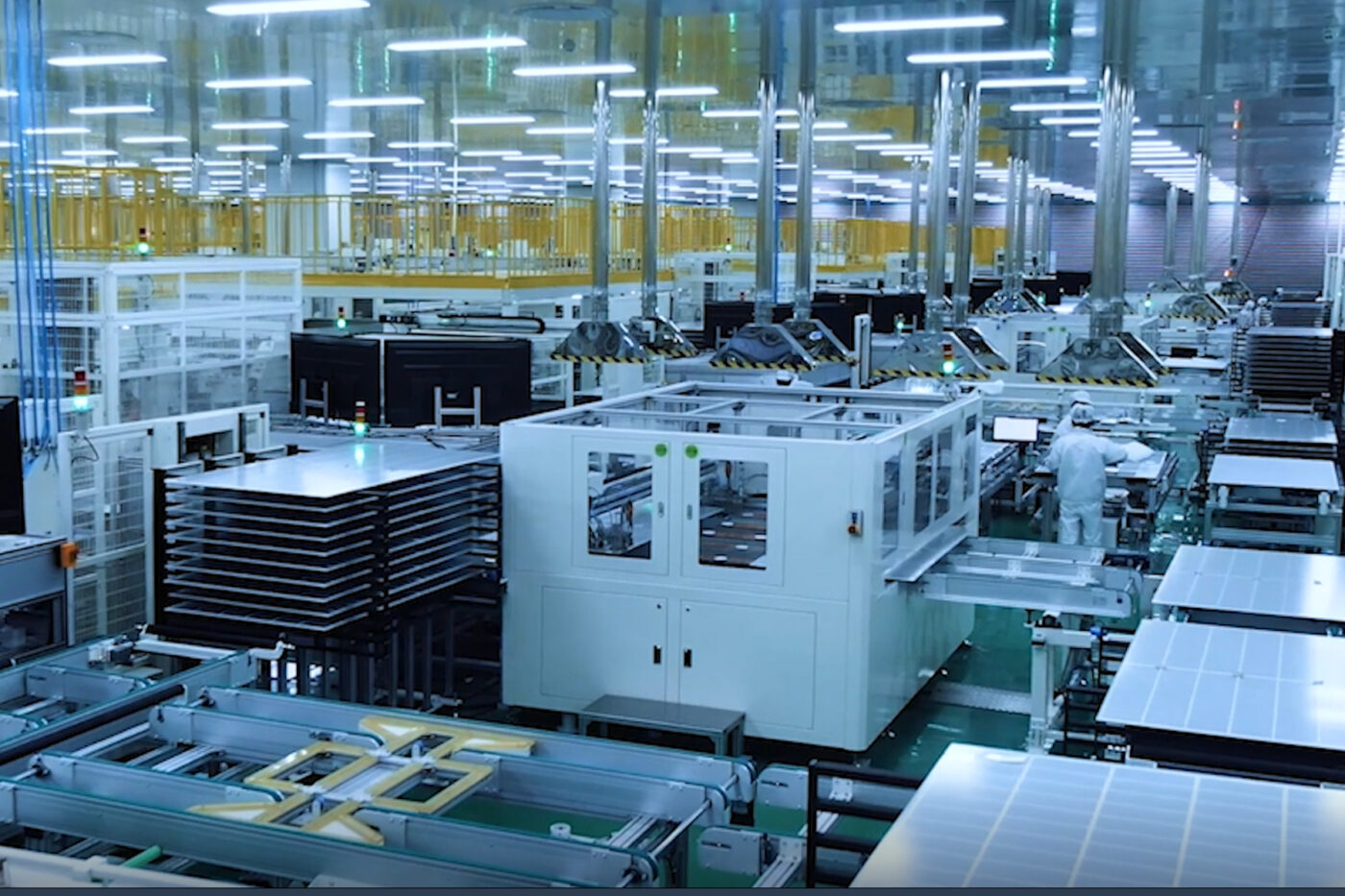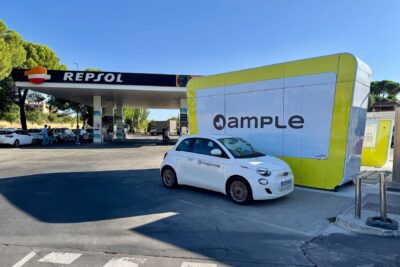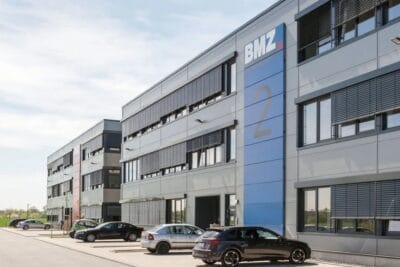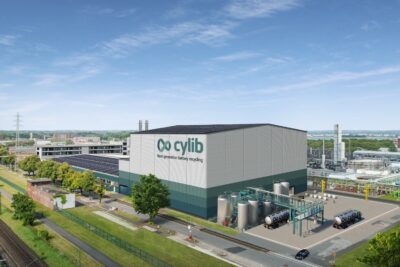
LEAD Chairman Yanqing Wang provides insight behind the scenes of battery production
Developing battery cells is one thing, building them at a reasonable price and quickly in large quantities is another. LEAD offers turnkey systems for the production of lithium-ion cells. How do your systems differ from those of other factory equipment suppliers?
Driven by technological innovation, battery production demands both R&D and industrialization expertise. The manufacturing process is complex, requiring advanced research and practical experience to meet stringent quality standards. These standards significantly impact costs, making the quality of production line systems and the technical expertise of suppliers crucial.
LEAD delivers unique value to customers through its extensive industry experience. As the world’s leading turnkey solution provider for intelligent manufacturing in the battery industry, LEAD offers cutting-edge technologies refined through 20 years of engineering excellence. We have served nearly all leading battery producers globally, with our business and projects spanning over 20 countries and regions.
The distinctiveness of LEAD’s industry experience lies in the following aspects:
Intelligent, Modular Solutions for Enhanced Efficiency:
LEAD’s systems are designed for high efficiency and adaptability. Our modular approach ensures quick adjustments and upgrades, minimizing production line changeover times and allowing seamless adaptation to market demands. This flexibility leads to significant cost savings and enhanced efficiency. We utilize advanced digital technologies for smart factories, intelligent logistics, and real-time monitoring to optimize production and product quality. A standout feature of our solutions is their seamless integration with data analysis, AI models, and failure detection systems.
Proven Industry Expertise and Innovation:
With over 20 years of engineering excellence and experience serving nearly all leading battery producers globally, LEAD offers unique insights and best practices for optimizing product design, process design, layout, production planning, and ramp-up support. Our extensive industry knowledge, combined with advanced research and practical experience, ensures that we meet stringent quality standards, which significantly impact costs. Newcomers to the industry gain a substantial head start with our proven production practices, while established players can leverage our cutting-edge solutions to refine and elevate their operations.
Comprehensive Turnkey Solutions for Seamless Integration:
We provide an all-inclusive service – from consulting and design to manufacturing, installation, and training. This holistic approach ensures high product yield and consistency, reduces communication issues, and prevents problems associated with fragmented supplier responsibilities. LEAD is currently the world’s only lithium battery intelligent manufacturing turnkey solution provider with full independent intellectual property rights. Our solutions provide a fully integrated and automated approach to smart manufacturing. Our services cover every stage, from production planning, raw material processing and cell manufacturing to assembly, testing, final packaging, and retired battery recycling. This seamless integration enhances production efficiency and product quality using advanced digital technology, ultimately reducing costs and maximizing productivity for our clients.
What does the customer have to contribute to the planning of a production plant, and what does LEAD do?
The success of a battery factory depends on various critical factors. In addition to product research and development, manufacturers must effectively manage technology, costs, and efficiency, all while closely collaborating with regulatory authorities, suppliers, and stakeholders.
The customer’s contribution to the planning of a production plant is crucial as it directly impacts the success and satisfaction of the project. Here are key aspects where the customer’s involvement is essential:
Requirements Definition: Customers need to clearly define their operational needs, production goals, and specific requirements for the plant. This includes production capacity, product specifications, quality standards, and regulatory compliance.
Feedback and Validation: Throughout the planning process, customers provide feedback on proposed designs, layouts, and equipment choices. Their validation ensures that the plant design aligns with their operational workflows and meets their expectations.
Financial Considerations: Customers contribute by providing budgetary constraints and financial guidelines. This helps in making decisions on cost-effective solutions without compromising on quality and functionality.
Timeline and Milestones: Customers play a role in setting project timelines and milestones based on their operational schedules and market demands. Their input ensures that the plant is operational within the required timeframe.
Long-term Strategy: Customers often have insights into long-term business strategies and market trends. This perspective is valuable for designing a flexible and scalable production plant that can adapt to future needs and expansions.
The framework of contribution varies also slightly depending on the customer’s stage:1.Established Customers:
Established customers bring valuable industry-specific knowledge and experience to the planning process. Drawing on their operational experience, they specify detailed equipment parameters essential for the production plant, ensuring it aligns precisely with their needs and standards. Their market expertise helps identify critical factors for consideration during plant planning, minimizing potential risks.
2.“Newcomers”:
Newcomers to the industry often depend on external expertise to navigate the complexities of setting up a production plant. They provide insights into their strategic vision, business goals, and specific needs such as production capacity, product specifications, and regulatory compliance. LEAD supports these customers throughout the planning process, offering a one-stop solution that can manage significant parts or even the entire production planning process on their behalf.
LEAD’s Contributions:
LEAD plays a crucial role in the planning of a production plant through a multi-faceted approach:
Offering an End-to-End, Customized Intelligent Solution: Whether for established customers refining their operations or newcomers building from scratch, LEAD tailors its solutions to meet specific requirements, ensuring efficient and effective plant setup. From conceptualization to execution, LEAD supports customers with comprehensive planning, design, and optimization services, ensuring a seamless transition from planning to operational phase. LEAD ensures seamless coverage across all stages of battery production. By integrating technology leadership and customized intelligent solutions, we facilitate efficient operations and sustainable production processes. This approach supports clients from initial consultation through to the realization of their production goals.
Engaging in Pre-Sales Communication and Customer Collaboration: LEAD invests significantly in understanding client needs through proactive communication and collaborative R&D efforts during the planning phase. By fostering a deep understanding of client requirements and goals, we translate these insights into tailored business optimizations and operational strategies. This proactive, customer-centric approach ensures that planning is not only feasible but also enhances the effectiveness of production line operations.
Technical Expertise and Guidance: LEAD provides expert guidance throughout the planning phase, leveraging its industry knowledge and experience to suggest optimal solutions and strategies. LEAD emphasizes technological innovation and quality assurance, dedicating substantial resources to R&D and maintaining close client collaboration. Through smart integration, automation, and modular solutions, we optimize production processes and enhance technological upgrades aligned with each client’s unique product specifications.
By integrating these contributions, LEAD facilitates the planning of production plants with a holistic approach that emphasizes innovation, collaboration, and customized solutions, thereby ensuring sustainable and efficient production outcomes.
What difference does it make for you with the production systems if the customer wants to produce different cell chemistries?
The production systems for different cell chemistries require adjustments due to variations in energy densities and material properties. Each material necessitates specific equipment capacities and line balancing. For example, transitioning from conventional Li-ion cells to new technologies like solid-state batteries involves significant changes. Additionally, production environment conditions, such as humidity and atmosphere, must be tailored to the materials used.
LEAD’s robust R&D capabilities and extensive engineering experience enable us to implement solutions and projects for both pilot and production lines across various battery material systems. Our expertise spans a wide range of materials, including NCM (Nickel Cobalt Manganese), LFP (Lithium Iron Phosphate), and sodium-ion batteries.LEAD’s scalable technologies allow us to quickly meet the demand for next-generation batteries. Our proactive strategy allows us to adapt swiftly to new industry requirements and technological advancements. We have recently partnered with industry leaders and secured orders for solid-state production lines from prominent automotive OEMs and solid-state battery enterprises worldwide.
We are preparing for large-scale production of sodium-ion batteries in the European market, showcasing our readiness to support new chemistries as they become commercially viable.
In which production step will we see the next development steps? Or are they more likely to be incremental improvements across all areas of production?
Advancing productivity is a key trend in societal development. From an enterprise perspective, breakthroughs in related technologies can significantly enhance efficiency throughout the production process.
For example, we have invested in technological advancements in electrode manufacturing, anticipating substantial improvements. The introduction of dry-mixing and dry-coating processes will require new systems for material transport, film formation, and lamination. The ideal machines should be highly integrated, greatly reducing footprint, energy consumption, and CO2 emissions. Additionally, we aim to measure quality and evaluate complex interrelationships between material and process factors through robust AI models and advanced computing power.
We believe that technological and product capability development will transcend specific production steps. This progress is influenced by multiple factors, as outlined below:
Manufacturing Process Improvement:
Based on long-term research and analysis of battery manufacturing processes and parameters, LEAD has implemented numerous innovative technologies to optimize process flows and production layouts. These advancements have boosted equipment productivity, lowered overall costs for customers, and ensured stable product quality.
Continuous Optimization of Turnkey Solutions:
We continually refine production processes and manufacturing techniques to enhance efficiency within our turnkey solutions. By streamlining and integrating these processes, we offer customers greater efficiency, reduced energy consumption, and lower management costs, leading to higher product quality. Our technological innovations ensure ongoing improvements in both production efficiency and product quality.
Promotion of Digital-Intelligence Integration:
In the rapidly evolving landscape of smart manufacturing, LEAD proactively integrates advanced technologies such as intelligent manufacturing systems, the Internet of Things (IoT), and big data throughout the entire production domain. We have independently developed the LEAD-ACE PHM (Predictive Health Management), PQM (Production Quality Management), and PEM (Production Execution Management) platforms. These platforms enable equipment fault prediction, closed-loop quality control, and enhanced production efficiency through the digitization, intellectualization, and transparency of the production process. This comprehensive integration of digital and intelligent technologies not only boosts production efficiency and product flexibility but also reduces production costs and energy consumption, thereby creating greater value for enterprises.
Momentum in the Global Energy Transition:
The worldwide shift towards clean energy and the establishment of carbon emission targets have created significant development opportunities for the new energy industry. With increasing global market demand, LEAD has devised an international strategy aligned with market trends. Collaborations with prominent global enterprises have enhanced LEAD’s brand recognition and influence, fostering greater opportunities for technological exchange and cooperation. These collaborations also strengthen our technological and product capabilities.
You not only build production systems for lithium-ion batteries, but also for electric drive systems, PV systems and fuel cells, for example. Are there synergies between these areas in the background?
Guided by a platform strategy, LEAD has significantly broadened its business scope, with a strong focus on lithium-ion batteries and photovoltaic smart equipment. We have successfully ventured into diverse sectors, including 3C smart equipment, intelligent logistics, automotive equipment, hydrogen technology, and laser precision equipment. Through relentless effort and exploration, our new ventures have quickly emerged as leaders in their respective industries, demonstrating clear synergies from our platform strategy.
Technological Innovation and Transformation:
Our platform strategy fosters numerous opportunities for technological crossovers and innovations, enabling new experiences and exchanges. This advances our technology and expertise across new energy sectors, unlocking synergistic possibilities for our clients.
Energy Management and Storage:
Technologies related to new energy require effective energy management and storage solutions. This includes lithium-ion batteries, fuel cells, and PV systems, all needing efficient energy storage and management methods. Insights gained from understanding one technology can often optimize another.
Material Science and Chemistry:
Materials used in lithium-ion batteries, fuel cells, and PV systems share some common aspects in terms of durability, efficiency, and environmental impact. Advances in materials science often benefit multiple technologies.
Manufacturing Processes:
Our technologies show strong scalability in different manufacturing processes such as precision assembly, quality control, and automation. Experience gained from one industry can improve manufacturing efficiency in others.
Integration and System Design:
Designing efficient and modular systems requires understanding how various components interact and how to optimize their integration. Experience in one area can translate to better integration solutions in another.
From a corporate operational and developmental standpoint, establishing a multi-sector business matrix mitigates risks linked to cyclical fluctuations in any single sector. Simultaneously, our platform strategy opens doors to diverse market opportunities. Our engagement in projects involving lithium-ion batteries, photovoltaics, hydrogen energy, and other sectors has provided profound insights into diverse technologies and markets. This positions us uniquely with advantages in the competitive landscape of our core sectors.
This is a sponsored article and the client is responsible for the content. If you would like to inquire about similar opportunities, please get in touch via advertise@electrive.com.




